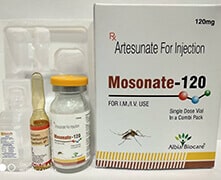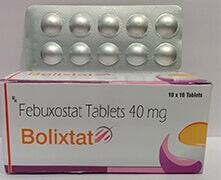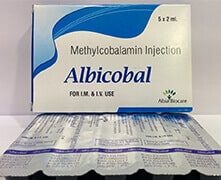Albia Biocare: Best PCD Pharma Franchise Company in India
The best amongst medicine franchise companies
Albia Biocare pharma franchise company is a trusted and well acknowledged name in the PCD pharma franchise business. We are one of the top pharma franchise companies in India and supply a wide range of herbal and pharma products in India.
As a pharma franchise company, we offer a full range of dosage forms that include:
- Tablets
- Capsules
- Softgels
- Syrups
- Drops
- Ointments
- Gels
- Oils
- Granules
- Powders
Our product range is comprehensive and comparable to the widest range offered by any of the top PCD Pharma franchise companies in India. Check out the product range of one of the best PCD franchise company in India that covers the following segments:
- ANALGESICS & NSAIDS
- ANTHELMINTICS (For Parasites/ Worms)
- ANTI ACID, PPI, ANTIDIARRHEALS & GASTRIC RANGE
- ANTIHISTAMINES, ANTI-ALLERGICS, ANTI-COUGH & COLD RANGE
- ANTI MALARIAL/ ANTI-INFECTIVE RANGE
- ANTI-BIOTICS RANGE
- CENTRAL NERVOUS SYSTEM (incl. ANTIVERTIGO, NEURO & PSYCHIATRY)
- DENTAL RANGE
- DERMA RANGE
- GENITO URINARY RANGE
- GYNAEC RANGE
- HEPATO (LIVER RELATED) RANGE
- METABOLISM
- MULTIVITAMINS & ANTI-OXIDANTS
- ORTHO RANGE
- PAEDIATRIC RANGE
- POWDER & SACHET
- AYURVEDIC (HERBAL RANGE)
- INJECTIBLES
As a pharma franchise company, we welcome qualified and experienced individuals as well as corporate from all over India to become our distributors/associates. If you are an M.R., ASM or RSM with inner passion and fire to build your own business starting with smaller investments, Albia Biocare (and its division Kyna Pharmeceuticals) is ready to offer Monopoly Marketing Rights on PCD pharma franchise basis for your district/cluster of districts. Pharma stockists, distributors and C&F Agents who have a strong network with medical practitioners, physicians and/or surgeons in their area can easily build a profitable and long term PCD pharma franchise business with Albia Biocare, one of the top Pharma Franchise companies in India.
Advantages of partnering with the best pharma franchise company in India
- We offer high quality PCD pharma products having the best-in-class packing manufactured in renowned manufacturing units accredited with WHO/ISO and GMP certifications and acknowledged for purity and accurate composition.
- The minimum investment for starting the business with one of the top PCD Pharma Franchise companies in India is as low as Rs. 20,000/- (per district in case of multiple districts) or Rs. 30,000/- (for a single district). The mandated minimum order amount for processing is as low as 5,000/- per order.
- There are no fixed monthly targets. You can have yearly targets, if you want to incentivize your performance.
- We strictly adhere to monopoly rights and do not entertain any business enquiry from any covered area.
- Amongst the top Pharma Franchise companies in India, Albia Biocare offers lucrative schemes on bulk purchases, which will help you build a bigger business much faster.
- We support by providing high quality, authentic promotional material.
- We ensure 90% dispatches of the goods within 24 hours and 100% dispatches within 48 hours once the payment is reflected in our accounts or the invoice is cleared for dispatch.
- Since Albia Biocare is a reputed name amongst medicine franchise companies, we have a professional team comparable to any of the best PCD franchise company in India at your service for prompt and accurate responses to your queries on products, packing, dosages, orders, billing, taxation, dispatches and /or logistics.
- Our portal serves as a one-stop solution for all your needs and requirements including the facility of e-ordering.
Promotional Aids
Following promotional aids are provided by any of the medicine franchise companies for the field support of PCD pharma franchise business:
- Visual aid (Folder)
- Product glossary
- LBLs (Leave behind leaflets)
- Sample catch covers
- Reminder-cum-thank you cards
- MR bag
- Visiting cards
- Order books
- Prescription pads
- Routine gifts for doctors with the brand name of the pharma franchise company
- Deepawali and new year gifts

































